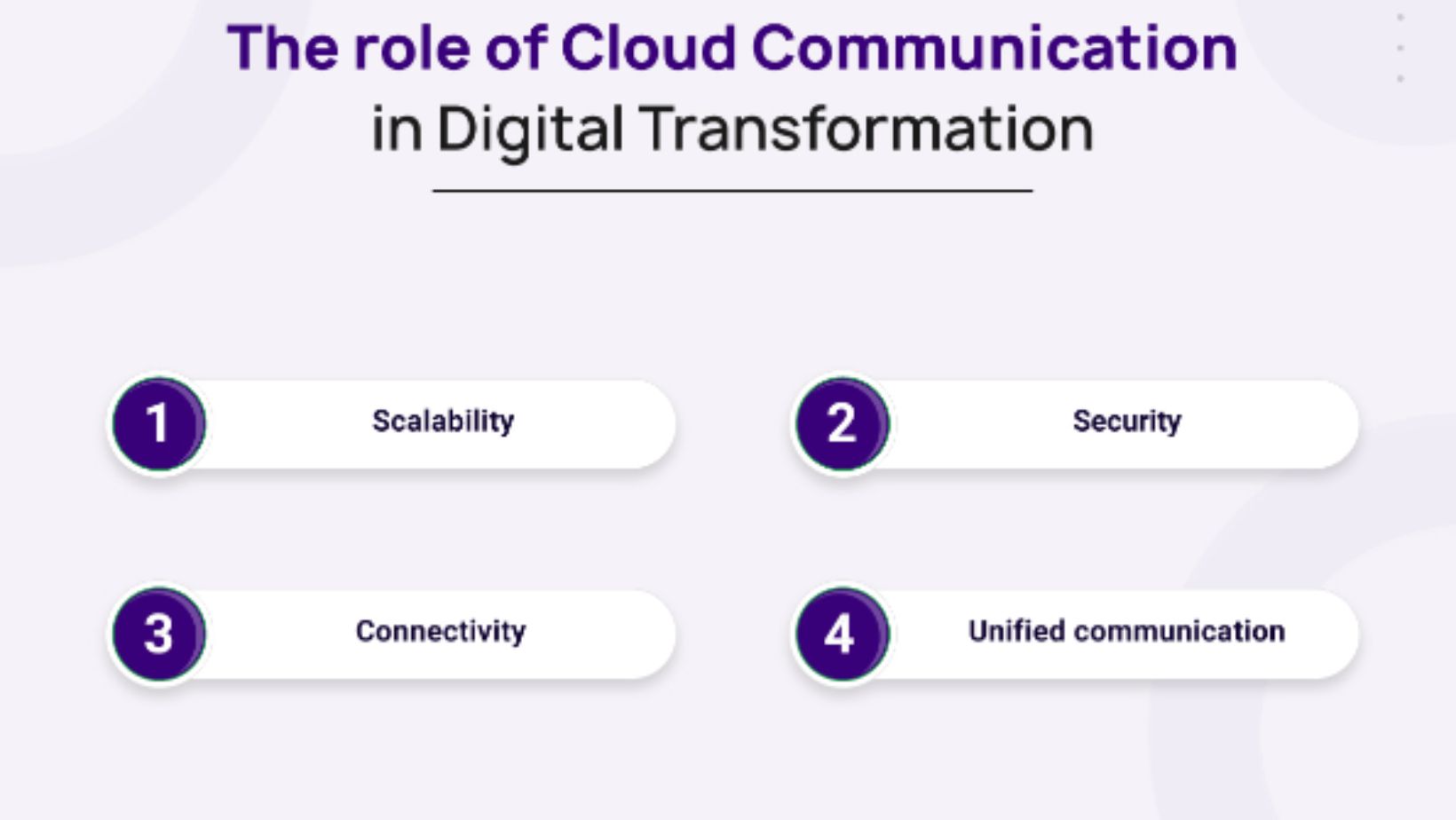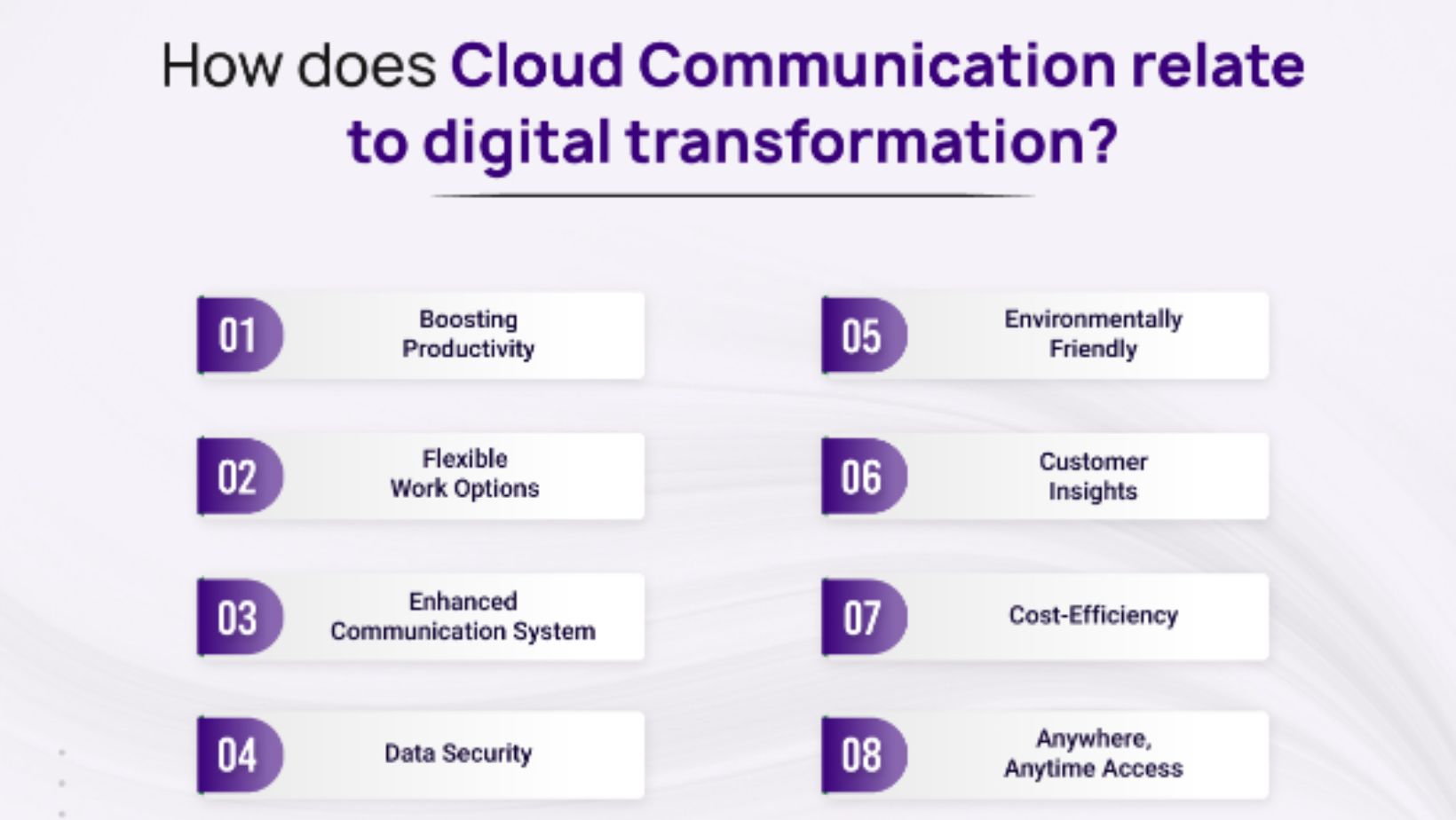
Do you feel like your voice and data communications are outdated, unreliable, and expensive? If so, you’re not alone. Many businesses are facing the same challenges.
The problem is clear: the old-fashioned communication system bogs integration and hampers innovation. Therefore, when tackling the exact same problem, cloud communication comes into the picture.
This blog will discuss everything about the cloud communication system, from its basic understanding to how it relates to digital Transformation. So, let’s get started.
Understanding Cloud Communication
Cloud communications refers to internet-based voice and data communications where the telecommunication is done on the cloud. This means that the applications, switching, storage, and any required computing are hosted and done by a third party outside of the organization using them. All the services are accessed over the public internet, eliminating the need for physical infrastructure.
Cloud communication solutions such as KrispCall make it easier to communicate effectively both through data and via telephony. Cloud communications allow businesses to make HD voice calls both internally among teammates and externally with customers.
The Role Of Cloud Communication In Digital Transformation
Here are the roles of cloud communication in digital Transformation.
Scalability
One of the main benefits of building a communication channel based on cloud services is its lack of physical limitations in terms of expansion. Cloud-based infrastructure means if a business needs to scale its communication setup, it can achieve that without worrying about resource allocation.
Additionally, cloud communication supports virtual numbers, which are just like regular telephone numbers but are not confined to geolocation. This helps you place your calls to other countries, giving you a wide range and much more scalability. For example, you can place your calls to the US with an actual legal number while residing outside of the US using a USA virtual phone number
Flexibility
Similarly, along with scale, cloud communication also brings flexibility to the table. Eliminating physical limitations, yet again, makes it easy for a business to add, remove, or even experiment with features. Also, the overall infrastructure can be accessed from anywhere with a good internet connection, making it an on-the-move setup- not confined within a particular place.
Security
Cloud service providers also work on securing the technologies they use. It can help the overall communication ecosystem to be more robust and less vulnerable. The providers use advanced encryption techniques to secure data and are also the first to adopt newer security measures.
Connectivity
The interconnected elements of the technological sector also represent the significance of digital Transformation.

Cloud communication provides a good platform for various services and technologies to come together. And attached to such are the people using them, who eventually get connected.
Unified communication
Cloud communication helps to integrate various communication channels, such as voice, video, messaging, and collaboration tools, into a unified and centralized platform. This enhances connectivity among employees and clients, saving time and making it easier to do all communication in a single interface.
How Does Cloud Communication Relate To Digital Transformation?
Cloud communication directly relates to the digital transformation trend, which overhauls and upgrades an organization’s communications infrastructure. Digital Transformation refers to the application of digital technology, in bits and pieces or fully integrated, to radically disrupt how businesses are run.
In this process, cloud communication plays a crucial role by offering scalable, flexible, and economical solutions that provide easy connectivity to users all over the world.
Boosting Productivity
All the beneficial factors of cloud communication add up to eventually boost overall productivity. By utilizing various measures and optimization metrics provided by cloud service providers and
Flexible Work Options
With cloud communication service in your arsenal, you can create an army of your calling personnel from various locations. Not only geographic location but also cloud infrastructure provides the flexibility of time. Technically, anyone can work from anywhere, thus flexible working options.
Enhanced Communication System
There isn’t a single super, one works for all, kind of operation process when it comes to communication systems. Cloud communication allows businesses to experiment with different setups without significant losses. It integrates diverse communication channels, streamlining interactions and ensuring a cohesive and efficient communication experience.
Data Security
As already mentioned, it is safer for businesses to store their data on the cloud than on their own server. Cloud communication services use advanced encryption and secure data storage protocols to protect data and information. End-to-end encryption services also ensure that the communication remains confidential and protected from the cloud provider itself and also against potential cyber threats.
Environmentally Friendly
Cloud communication minimizes energy consumption and overall carbon footprint by reducing the need for extensive physical infrastructure.

It contributes to a more environmentally friendly approach to technology, which is one of the major aspects of digital Transformation in terms of flexibility.
Customer Insights
Many cloud communication services come with various data collection tools. With power computing, complex data can be processed on the spot. Businesses can gather and analyze data on customer interactions, preferences, behaviors, etc, in real-time. It helps them to tailor their strategies and enhance their customer experience.
Cost-Efficiency
Digital Transformation involves reducing costs and optimizing resource allocation, and cloud communication excels in those aspects. It eliminates the need for extensive physical infrastructure, which reduces massive capital expenditures. Businesses now can only pay for the services they use, optimizing overall operational costs.
Anywhere, Anytime Access
Cloud communication enables access to communication services from anywhere with an internet connection. This is essential for modern businesses that may have distributed teams, digital nomads, remote workers, or a global presence, contributing to the mobility aspect of Digital Transformation.
Bottom Line
In conclusion, we know digital Transformation is not a one-time fix but a continuous adaptation process, so businesses and individuals have to get along with the new techs like cloud communication.

As the saying goes, “Out with the old, in with the new.” Cloud communication has become the alternative to outdated, unreliable, and expensive telephony. Through its scalability, adaptability, and thoroughbred nature, the network combines previously unconnected elements into an integrated whole of efficiently communicating entities and structures the digital domain.
FAQs
What Are The 5 pillars Of Transformation?
The 5 pillars of Transformation typically refer to key areas or principles that organizations focus on during digitization. While the specifics may vary, commonly cited pillars include:
- Culture and Leadership
- Digital Processes
- Technology integration
- Data and Analytics
- Customer Experience
These pillars collectively form a foundation for successful organizational Transformation.
Why Is The Cloud Important For Digital Transformation?
Cloud communication is integral for digital Transformation in so many aspects. It provides businesses with the flexibility to experiment with various strategies to begin. A particularly suitable model can be quickly adapted and expanded when it’s based on the cloud.
Also, the lack of physical infrastructure means businesses can collaborate with excellent remote workers. It checks the boxes of security, efficiency, cost-effectiveness, and so on. Thus, cloud services accelerate the process of digital Transformation and are important.
How Does The Cloud Enable Digital Transformation?
The use of cloud technology plays a vital role in driving Transformation as it provides a dynamic and scalable platform for various technological advancements. It enables organizations to efficiently store, process, and access data, fostering innovation. Cloud services also provide tools for collaboration, communication, and analytics, which help streamline workflows. Furthermore, the flexibility of the cloud allows businesses to integrate emerging technologies and stay competitive in today’s era.























